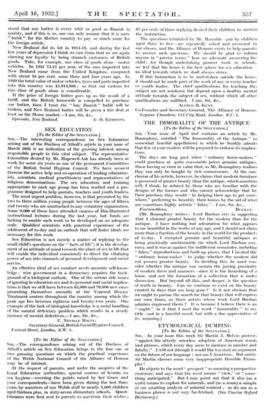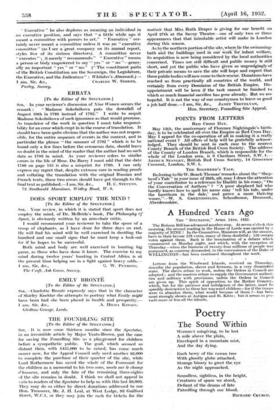ETYMOLOGICAL DUMPING
[7'o the Editor of the Srw-weroat.) Sut,—In your issue this week Sir Martin J. Melvin protests "against the utterly senseless adoption of American words 'and phrases, which every day seem to increase in number and fatuity." I will not (though I would like to) start an argument on the future of our language : nor am I American. But surely Sir Martin chooses some very inappropriate Horrible Exam- pies!
He objects to the word " prospect " as meaning a prospective customer, and says that the word means "view," or "some- thing anticipated." But I may point out that it also (as a verb) means to explore for minerals, and (as a noun) a sample of ore awaiting analysis of mineral content ; so its use as a business phrase is not very far-fetched. (See Concise Oxford Dictionary.) Executive" he also deplores, as waiting an individual in an executive position, and says that "a little' While ago it meant a committee with powers to act." " Execntive " cer- tainly never meant, a committee unless it was an "executive committee" (as I see a 'great company on it annual report; styles five of its sixteen directors). A committee never " executes " ; it merely " recommends;"" Executive" means a person or b&iy empoWered tO say." yes " or "no "—genet.; ally an important " yes " or "no." (" The constituent pints of the British Constitution are the Sovereign, the Legislature, the Executive, and the Judicature" : Whitaker's Almanack.)—









































 Previous page
Previous page